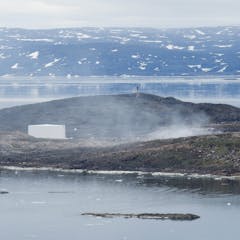
Todos os artigos de First Nations
Exibindo 141 - 160 de 277 artigos

Incorporating lessons from Ryerson University’s renaming process could help Canadian institutions address colonization.

Priority should be given to improving municipal solid waste management in First Nation communities because they currently lack financial resources, infrastructure and solid waste diversion programs.

When a patriarchal society is combined with a history of colonialism, women in that country are at heightened risk of gender-based violence.

A Catholic theologian writes about why papal apologies can be meaningful, even when some may see them as mere words.

This National Indigenous Languages Day, let’s celebrate the community-led initiatives that focus on building capacity and sustainability for future generations.

Birthing on Country services acknowledge First Nation peoples’ continued ownership of land and unique birthing practices.

Far from just a gathering with friends, Australian picnics have long been associated with the political – from trade unions to feminist resistance.

Ecosystems thrive in places where human connections with nature go back generations.

The Ring of Fire Regional Assessment is Canada’s first opportunity to apply new legislative tools to co-operating with Indigenous jurisdictions. But the government is messing up.

Indigenous Nations have always maintained their citizenship orders. They have always retained the right to determine who does and does not belong. We know who we are.

Plus, a lawyer explains the legal battle over Canada’s discriminatory First Nations child welfare system. Listen to The Conversation Weekly.

In the next year, public support will be needed more than ever to ensure that the spirit of the agreement is respected and translated into meaningful change for First Nations children.

When the media consults the CTF, it demonstrates contemporary hostility towards Indigenous nations. Viewing the CTF’s advocacy as a whole demonstrates their orientation very clearly.

First Nations women are disproportionately more likely to be targets of online abuse. More needs to be done to respond to and support women experiencing technology-facilitated abuse.

There has been a clear trend since the 1980s towards more favourable public attitudes on Indigenous issues. The reason? A better-educated citizenry.

Those quick to call-out are often not clamouring for Indigenous nations’ jurisdiction over citizenship, nor are they demanding “pretendians” be held accountable to Indigenous nations.

A review of studies of Parramatta demonstrates an extensive deep-time archive of Indigenous activity extending over 14,000 years.

If senior ministers of the Crown in New Brunswick responsible for Indigenous relations cannot accept or acknowledge Indigenous sovereignty, then surely nation-to-nation must be dead.

Colonialism is manifested by the way pollution impacts the lives of Indigenous peoples in Canada. Two Indigenous environmental scientists discuss how they’ve overcome obstacles in their research.

Indigenous people who vote are reminding Canada of the nation-to-nation relationships that continue to exist and to bring change from within the very structure that has been used to erase them.
